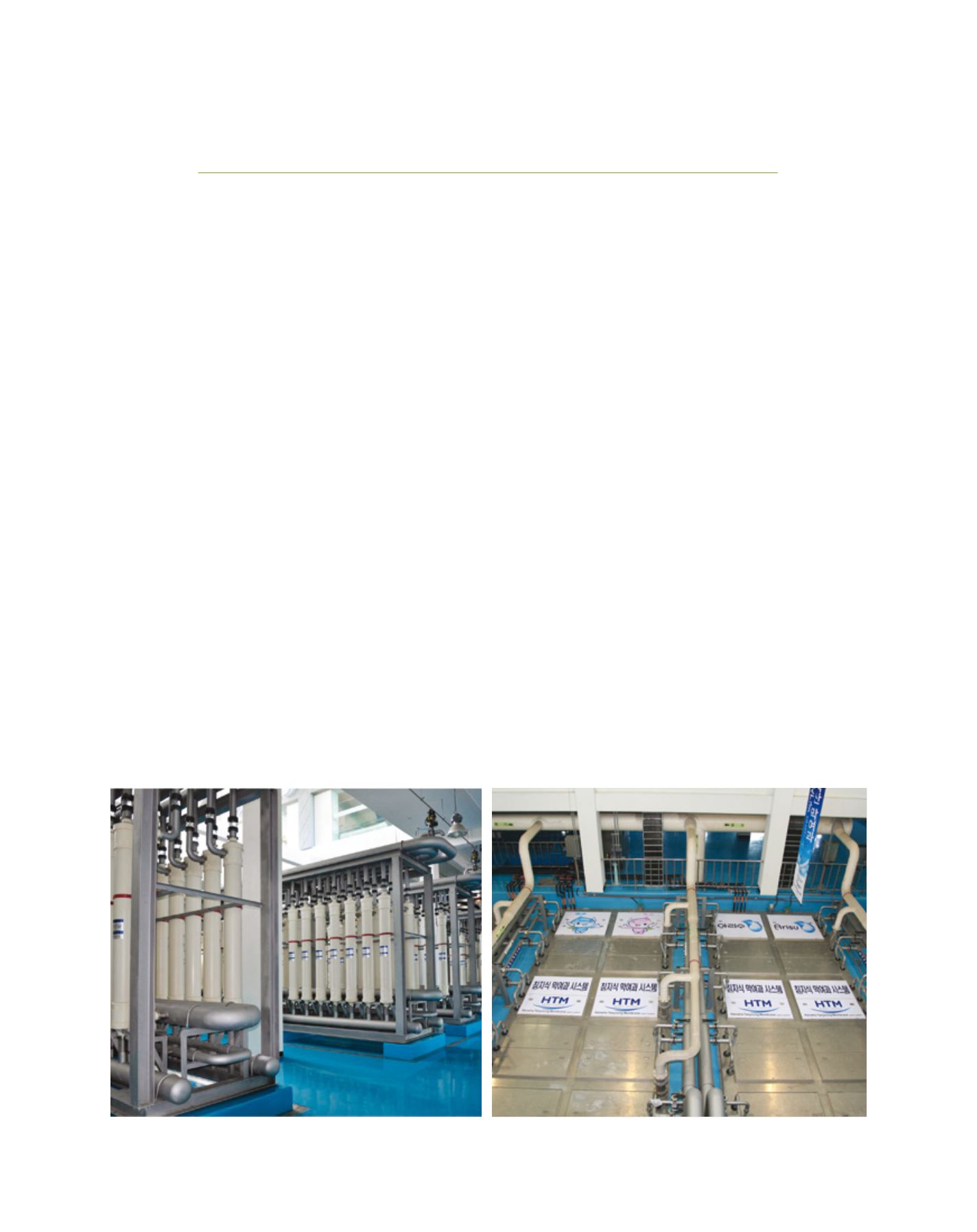

[
] 311
The Eco-Smart Waterworks System
Soo Hong Noh, Centre for Eco-Smart Waterworks System, Yonsei University
T
he global water shortage and uneven water supply and
demand problems are getting serious. According to a
UN-Water analytical brief in 2013, one in six people world-
wide does not have access to improved drinking water sources.
1
Climate change dramatically affects water environments, causing
increases in frequent and heavy rainfall events, high turbidity in
water and algal blooms. In Korea, the concentrations of taste and
odour-causing substances such as geosmin and 2-Methylisoborneol
(2-MIB) in raw water have increased up to 1,000 nanograms per
litre (ng/L) during the summer season. Conventional drinking
water treatment processes could not remove high turbidity or the
taste and odour-causing substances effectively. Climate change is
an increasingly significant challenge in water supply.
The Centre for Eco-Smart Waterworks System at Yonsei
University was established in May 2011 and funded by the
Ministry of Environment of Korea as a part of 10-year Global Top
Project.
2
The centre has more than 50 academics and industrial
partners and an overall budget of US$72 million for five years.
Its main goals are to:
• develop advanced hybrid membrane water treatment systems
for safe and sustainable water supply
• develop total solution processes based on ET-IT-NT integrated
technology covering the entire process from raw water intake to
water treatment plant to the tap
• promote the growth of global water companies.
The global water market has rapidly expanded over
recent decades and is expected to grow even faster in
the coming years. The Korean Government has desig-
nated water business as a new growth engine and, like
many countries, has been building national strategies
for promoting the water industry.
The centre develops world-class membrane technol-
ogy, a high-tech intelligent optimized water treatment
system, and a water treatment process optimized for
export markets. Its three main technologies for the
drinking water industry are:
• fouling and chemical-resistant membrane modules
with less energy consumption
• hybrid membrane processes for the treatment of
drinking water from various water sources
• the Eco-Smart Waterworks System with a total
solution based on ET-IT-NT technology.
Korean engineering and construction companies have
extensive experience in the design and construction of
waterworks systems in domestic and oversea markets.
However, they have limited experience in the opera-
tion and maintenance of waterworks. The centre has
supported participating companies to obtain opera-
tion and maintenance experience with the cooperation
of local governments such as Seoul and Daegu. This
I
nternational
C
ooperation
on
W
ater
S
ciences
and
R
esearch
Yeongdeungpo waterworks: the DIMS pressured membrane (left) and HTM submerged membrane (right)
Images: Daewoo E&C (left); Hanwha E&C (right)


















